Money, Money, Money
on Apr 12, 2017

Here in the United States, April is a time when a lot of folks are thinking about MONEY. Either because the Tax Man is coming to collect or because they've somehow managed to overpay said Tax Man and are getting something back. Myself, I don't remember the last time that I got a refund so I have to watch enviously as folks spend their refunds on full sets of Cthulhu Wars expansions or save up for all that great Games Workshop stuff coming to Miniature Market. For this month's special feature, I didn't give the Review Corner writers any direction other than a single word- that's right, MONEY. They were free to interpret this however they saw fit, as long as it came back to hobby gaming in some way.
Michael Barnes
Review Corner Editor-in-Chief
Michael
The first thing I think of when I think of money in relation to games, the first thing I think about is Reiner Knizia's excellent Money, a card game that is actually about...yep, money. The second thing is paper money. Many people hate it. I've seen endless complaints about Monopoly-style play money in games. But for my money (see what I did there), if your game is about making money then it needs to have some actual bucks in it. I don't care about metal coins, I don't care about little cardboard doubloons or ducats or whatever- I want to be able to fan bills, peel off a couple to pay for something, and have a fat stack to stash in my shirt pocket like a real high roller. Something about those paper bills evokes much more emotional investment than plastic chips or whatever. One of the better expansions for the Firefly game, which already had some of the best paper money ever, is an add-on called Big Money that gives you EVEN BETTER paper money.
Charlie
When I think of money in the context of board games I think of the physically monstrous titles that swallow your bank account and steal your child's college fund. Those games whose storage system is basically "leave it on the floor". In this instance I can't help but conjure up images of that dark monolithic box holding Cthulhu Wars. If you were coming to the door expecting me to talk about an economic Euro-game then you best check out.
Cthulhu Wars is one of the largest single box money sinks you can find at Miniature Market. Conan does come close, clocking in at just a hair over a Benjamin Franklin, but Cthulhu Wars is the better game. When you're knee deep in cosmic terror and plotting the downfall of your alien god brethren, you won't be fretting paying the mortgage or getting Jimmy the loan shark back his money before your knee caps are caved in. It's about the excitement of the moment, tactical aggression, and enormous miniatures that defy their classification. Sometimes pinching pennies and going on a ramen diet is worth it.
Drew
Usually, when I think about money-centered, economic games, the first titles that pop into my mind are lengthy euro titles. And some of those are exceptionally awesome. But there are a lot of ways to make money in the board game world. Some of them even pack an intensely currency focused experienced into a short play time. And perhaps the best of those is Chicago Express. In this game, as in life, the goal is to make the most money. You do that by investing in train companies and building routes from the East Coast toward Chicago. But the important thing is that you don't simply have your own line. Instead, you buy stock in various companies along with other players. The result is organic alliances where players might work together. Or when the balance of power is upset, one player might tank the company and hurt the other stockholders. And, best of all, the whole game takes place in about one hour. This title combines the best aspects of wealth accumulation with a short enough playtime to keep it interesting and accessible.
Pete
I love financial games, and always have. Maybe it's that I was raised playing Payday and Monopoly, but no matter what the reason, I always find economic games to be fascinating and enjoyable. Of all the games I've played with finance as a core, the top three are Mine-A-Million, a long out-of-print Waddington's game that simulates the mining industry very well, Hotel Tycoon, a simple roll-and-move Monopoly clone which has 3D buildings and cut-throat tactics, and my all-time favorite, McMulti (now Crude: The Oil Game) which accurately depicts petroleum exploration, exploitation, and world markets. My real job has a lot to do with commodities, and the way Crude manages supply and demand in very realistic terms makes the game very fun, yet also, very realistic. Sadly, I rarely win, so maybe it's time for me to go to clown school like my dad said?
Raf
I will admit that I am not the biggest fan of games with money in them. I don't want a game to end with who has the most money; typically it's just an arbitrary counter like victory points. I want conflict and drama. I want to win because I took your land or blew up your ships, not because I out-efficiencied you. There's a big exception to this, and that's Lords of Vegas. Money is part of winning and you need money to do things but the action of the game is so exciting. This game is about Vegas, baby. You've got to constantly keep up with the glitz and glamour of the casinos rising around you but you can also gamble your savings away. Every casino you build is open for business. On their turn a player can waltz into your casino and wager their fat stack against yours. If they win, you better find something else to wipe your tears on because there's nothing you can do about it. If they lose, guess who is getting a new pair of shoes (or a new casino). It's fast and exciting, and is one of the few games where paper money adds to the experience instead of detracting from it.
Byron
Board gaming is not a pauper's hobby, and new gamers are always wondering how they can save a dime. Take it from a veteran scrimper and saver: take advantage of sales and trades, delay your gratification a bit so you can fulfill the free shipping quota, but never, ever compromise on the games you want to play. It's a lesson I've learned the hard way. Early in my gaming career, there were many times when I thought, "I can't quite afford Pandemic Legacy, but surely Forbidden Island is just as good?" It's not. Even if it means foregoing three smaller games, make sure you lay your hands on the games you really want, not some Wal-Mart knockoff. This isn't me hating on small box games; small box games are great, but nothing can replace the game you really want.
Here's another piece of sound financial advice: it's a much better idea to spend a lot on a single game than to spend a little on a lot of games. If you find a game you love, an expansion is almost never an unwise purchase. It means less time spent learning new rules, less risk, and more fun for everyone.
Nate
No game says "money" to me quite like that timeless classic, Acquire. Over fifty years after its initial release in the early 1960s, Sid Sackson's magnum opus remains the premier game of investments, dividends, and stocks. The players buy shares in corporations, whose sizes are represented by a grid of tiles. This is an ingenious bit of abstraction, giving a visual representation of a company's relative power. It's just one ingenious bit of design in a game full of such bits. Shares in big companies are worth more, but those assets are frozen unless the company is bought by an even bigger one. It's a tight 45 minutes of hard choices between short-term gains and long-term payoffs, and probably the best game about money ever made.

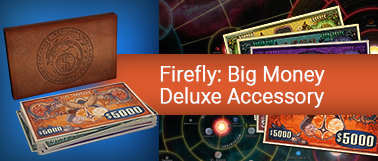
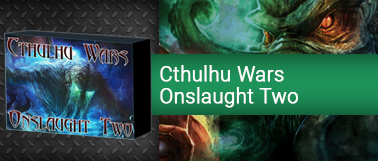
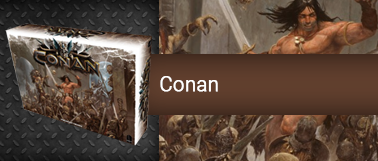
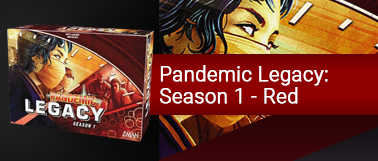
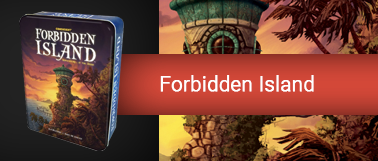

 Customer Support
Customer Support  Subscribe
Subscribe 




 Account
Account  Wishlist
Wishlist 




